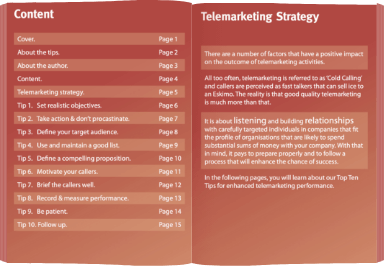As someone who’s steered a telemarketing agency through both calm and stormy seas for nearly a quarter-century, I often find myself reflecting on the journey of highs and lows that characterises SME ownership.
With around 40 years of combined corporate and entrepreneurial experience, I thought I’d try to provide fellow entrepreneurs, and those transitioning from corporate life, an honest insight into some of the aspects to running a business that I believe are important. I hope it benefits a few who take the trouble to read this article. I’ve also added 14 tips at the end. You can skip to these if you can’t be bothered to read the whole post.
Corporate Ladder to Entrepreneurial Rollercoaster
My professional journey began with an International Marketing Degree, after which I headed into telesales at STC Electronics — a role I despised. The irony of starting in a role I loathed only to establish a successful career in telemarketing isn’t lost on me. This was followed by a fruitful stint at Cover Girl cosmetics, leveraging my French language skills to sell directly to supermarket buyers across France, Belgium, and The Netherlands. My rapid ascent from marketing assistant to area manager was fun but after a couple of years, I was already yearning for new challenges.
So, just over three years post-uni, I found myself as the European Sales Manager for Alfred Dunhill’s fragrance division. The role was a perfect fit, allowing me to indulge in my passion for sales and marketing.
Seeing and Grabbing Opportunities
I saw an opportunity. The variety was exciting. I loved using my fluent French. But, I wanted even more. So, one day, I walked into the office of my divisional MD, and told him that he wasn’t doing a good job with our USA business, and asked him to give it to me. I Spent the next 2 years travelling to Hawaii, Alaska, NYC, San Francisco, Toronto, Vancouver and so on. If you don’t ask, you don’t get!
Then, another opportunity arose to look after the UK to run the Alfred Dunhill and Montblanc Luxury Goods UK Retail operation. Having not worked in retail before, it was enticing, albeit in the UK. It was super-busy, with lots of problems to solve, but I loved it. In conjunction with this, the business also asked me to run Marketing for both brands. I jumped at the chance to go back to what I’d studied too.
The First Uncomfortable Lesson in Ups and Downs
Over nine years, I fulfilled a number of other other interesting roles at Alfred Dunhill, but the further up I went, the more politics kicked in. Would I get a General Manager position? Might I be seconded to central Marketing. I was offered a position in Japan. There were rounds of redundancies. I survived. But, it was an uncertain time. To some extent, I felt stuck, and that my 9 year tenure was coming to a natural end.
It’s funny how things transpire. Just as I was edging towards the decision to change, the planets aligned.
Embracing Change and Chasing New Opportunities
Out of the blue, I was headhunted by Porsche Cars GB, stepping into a role that saw me as one of a senior team of four running a £250m business at that time. I had a team of 23 with 4 marketing managers reporting to me. Great times. A great management team, and I enjoyed myself.
Fast forward 3 and a half years, and my boss left. There was a hiatus for 6 months but we turned in the best figures ever. A new MD came in. I won’t comment about that period since it marked one of the ‘downs’ in my career. I wasn’t happy and then came probably the biggest crossroad, or decision point of my career. Do I leave and become Marketing Director, or Commercial director (all my roles were very commercial) in another big brand, or what??
Transition: Corporate Life to Marketing Consultant
I chose to go out on my own. Yet, the transition was far seamless. I’d had experienced marketing managers working for me with teams of marketers, in addition to multiple agencies. Now I was alone, and clients wanted me to do stuff!
What’s more, the new reality of dealing with SMEs, often strapped for resources and sceptical of expensive consultancy, was painful. I struggled to communicate the value of what I offered and, frankly, I did not want to do corporate websites, and brochures where I couldn’t earn a living. Yet, it was here in the trenches that I learned some of my most valuable business lessons about clarity of purpose, adaptability and the importance of constant networking and follow-up.
A Chance Meeting that Changed my Perspective
Through my networking, many years back, I had the opportunity to meet with Mike Southon, who wrote the book, The Beermat Entrepreneur. Mike was offering 15 minute sales sessions at the IOD in London to help small businesses with their business development challenges. Within no time at all Mike identified my issue. I told him that I was struggling to close business. It was low value anyhow. Paraphrasing here, he told me to stop worrying about the two prospects that I was struggling to convert, and start building my higher value pipeline.
Whilst easier said than done, it’s a lesson I have carried with me for perhaps 20 years or more. And, it has served me well. It’s also something which many of our clients fail to do consistently.
I always saw myself as a marketing guy. Yet, that limiting belief completely ignored the fact that a large proportion of my corporate career was in sales, and most of my roles were extremely commercial, and analytical. Another lesson learned. Today, I focus consistently on pipeline-building and, of all the leads I receive (that are valid i.e. not tyre kickers, or unsuitable), I convert two out of every three.
A Slightly Unconventional Route
My struggle to be a marketing consultant was getting me down, and was not providing enough income to pay for a mortgage,, and two kids at private school. I began looking for something else. Being interested in data, and segmentation, I started looking at courses. This led me to an affair with Data Protection that lasted several years. To cut a long story short, I engaged with the organisation that ran courses for the Institute of Direct Marketing, and the Chartered Institute of Marketing. Fast forward 6 months or so, and I was presenting many of those courses. This led to data protection consultancy, and that, in turn, led to working on data protection for one year on Congestion Charging for London. And, that led to plenty of high-value data protection audits, and a lucrative period for which I was grateful. Life was good.
Finding a Way Through the Maze
Yet, I could not see myself as a data protection consultant for the rest of my career. So, something had to give. I started looking at what I could transition to next. Being a commercial guy, by this time, I realised I was a crap marketing consultant. Nd, business had moved on. The gig economy had arrived, and organisations were going direct to website developers, copywriters, PPC agents and the like. In other words, they were cutting out the middlemen.
So, I needed to pivot again. After some soul searching, I looked at where my wife was working, in telemarketing. It seemed like a business I could understand. It was KPI-driven (I like that), direct, and was on the commercial side of marketing. I didn’t know much about it, but I thought I could add the service into what I was offering.
Building a Telemarketing Agency
Subsequently, together with my wife, Laura, I eventually founded our telemarketing agency, GSA, which aimed to carve out its niche in the competitive field of lead generation. The early days were challenging, with sparse clients and meagre earnings. Our first few clients were £250pm for 3 months, and we had to work hard for that (see above comment about SMEs)..
However, as we honed our services and established our reputation, the business began to thrive. We established our processes, embedded our values, and built our model.Our biggest breakthrough came when we secured a small piece of UK business, which opened doors to a larger, international project.
Going Global and a Lightbulb Moment
Around 6 years ago, we got lucky. We won the above piece of business that wasn’t particularly earth shattering in size, but it was for a large global client. Consequently, they asked us to bid for a European project. We won. And, it went global. There was one problem, though. We didn’t have the language capabilities, or the scale to run the project with our UK resources. So, with client approval, we found a partner in Romania, and delivered a great result and were awarded with a terrific testimonial which sits proudly, alongside a case study, on our website.
Lightbulb moment ahead! I thought ‘if we can do that, there must be other opportunities, and other providers’. So, I headed to the Department of Industry and Trade, and asked them to help me find other complementary partners. Fast forward, we now work with partner agencies in Spain, Hungary, South Africa, and Colombia. We get international multilingual projects for telemarketing that are larger, that are coordinated through our UK base.
Other Business Dalliances
Of course, the above isn’t the whole story. Along my journey, I worked as General Manager for Lenco Mobile, a mobile marketing provider based in the US and South Africa at a time when Mobile messaging just wasn’t the right solution for the UK market. I also jointly set up Sticky Communication with my friend Grant Leboff Sticky Marketing but we were ships in the night, heading in different directions. Other initiatives have come and gone along the way.
And then COVID-19
And just when I thought the upward trajectory would continue forever, COVID-19 hit. Everything stopped for the second time in my career. We’d built a decent business. Those old fears resurfaced, though. The 2008 recession dealt us a severe blow, erasing major clients overnight and testing our resilience. What if it was going to be another long hard road back to the summit?
The team went on furlough but, as a director of my own business (alongside my wife who is co-director), I got nothing. It was a scary time in every respect. Yet, once again, it’s during these tough times that you learn what makes you strong. Again, we solidified our business model. We looked at our services and our model. Pivoting just wasn’t an option so we decided to ride it out. And, thank goodness, it worked. We’re stronger, with better revenue and net profit than pre-Pandemic. We’ve recruited. We have bigger clients. Client values have grown, thereby reducing complexity. We’ve added additional services. We’ve acquired tools to make life easier and to better serve clients.
Lessons Learned Along the Way
I’m sure that I’m not alone in this, sometimes, bumpy journey. I don’t think I’ve even necessarily arrived at my destination, even at my tender age!
I’ve learned a few things though. Encapsulating those learnings is not easy. But, below, I’ve attempted to jot down a few things that I hope will assist those of you that have either bothered to read this whale article, or skipped to this point.
- Resilience is Crucial: Business cycles are inevitable. Your response to these fluctuations defines your long-term success.
- Stay Vigilant for Opportunities: Always be on the lookout for the next growth avenue or efficiency gain.
- Maintain Momentum: Inactivity can be detrimental. Keep pushing forward, even when the path is unclear.
- Learn Continuously: Every mistake is a learning opportunity. Reflect on what works and what doesn’t.
- Failure is temporary, and it’s actually a way to learn what doesn’t work in the pursuit of what does work.
- Uphold Your Values: Consistency in your principles ensures stability amidst chaos.
- It’s Business, Not Personal: Not every loss is a defeat; it’s all part of the entrepreneurial journey.
- Follow-up Relentlessly: Whether for sales or networking, the follow-up is where relationships are forged.
- Allocate Resources Wisely: Invest in areas that will yield the highest returns. Ideally invest ahead of the time you need it.
- Take Risks: This is perhaps one of the areas where I have sometimes fallen behind the curve. I could have taken more risks.
- Keep Curious: Never stop exploring new ideas or questioning old ones.
- Build your pipeline: And, keep it full.
- Be prepared to embrace change at all times.
- Build lasting relationships: It’s always about people.
Conclusion
While these insights are drawn from my own experiences, I hope that they will resonate with those that have navigated the unpredictable waters of SME management. Whether you’re just starting out or are a seasoned entrepreneur, I believe that embracing these principles can help pave the way to sustained success and fulfilment.
Of course, they’re not the only ones. I’m sure some can be replaced, or added to, with others.
Finally, I hope sharing my journey and the lessons I’ve learned inspires you to reflect on your own path and the endless possibilities that entrepreneurship offers. Feel free to share your experiences and insights; I look forward to hearing how others navigate the complex yet rewarding world of business ownership.






